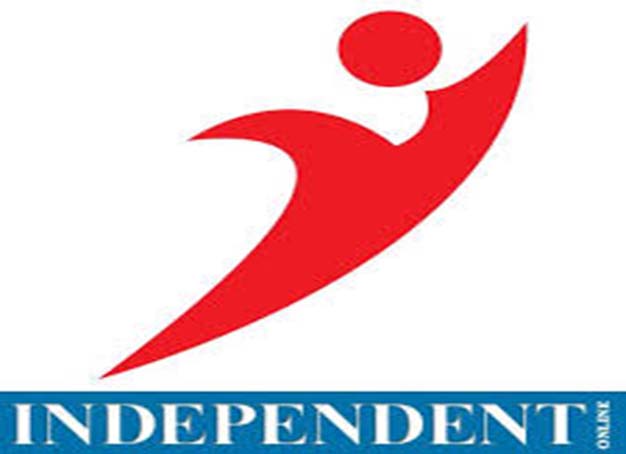
Financial experts say the naira may hit N2000 to a dollar exchange mark in a matter of months considering how the currency continues to depreciate both at the official and parallel markets despite efforts being made by the Central Bank of Nigeria (CBN).
The naira was N1,120/$ on December 31, 2023. It went down to N1,400 on Friday, January 26, 2024, at the black market, recording a drop of N200 or 16,6 percent. It was N898 to a dollar at the official market on December 31, 2023, to N910 on Friday.
The naira depreciated to its lowest again in the official and parallel markets intraday trading. At the official market, the naira plummeted to about N1,399 per dollar, a drop of 16.55 percent and a low of N789 per dollar in the official market.
Last week, the Nigerian foreign exchange market saw a historic decline in the value of the naira, which reached an unrivalled intraday high of N1,399 per dollar at the official market on Thursday, January 25, 2024.
Data from FMDQ show a significant 6.15% drop compared to the N1,313 rate observed during the intraday trading a day earlier.
The naira declined sharply in the official market. Also, the intraday low saw a significant 11.28% drop as the dollar was quoted at N789 on Thursday, January 25, 2023, in contrast to N700 on Wednesday, January 24, 2024.
At the end of trading, the naira fell by 2.08% to close at N900.96 per dollar from the N882.24 recorded on Wednesday, January 24, 2024, at NAFEM.
The naira also fell to its lowest in the parallel market at N1,416 per dollar.
FG Floats The Naira
Immediately President Bola Tinubu on May 29, 2023, told Nigerians in his inaugural speech that the new government was going to unify exchange rates, the Central Bank of Nigeria (CBN) followed up when it said it was allowing the naira to trade at a market rate by shifting to a willing buyer-willing seller arrangement after eight years of exchange rate controls.
The switch to a “market-reflective” official exchange rate in June, which paved the way for the biggest single-day decline in the naira since 2016, was supposed to open the floodgates of investors who had been sidelined due to the alleged apex bank’s mismanagement of the FX market under former governor, Godwin Emefiele.
It was also expected to force a convergence in the wide gap between the rate dollars were sold at banks (the official rate) and the rate on the streets.
Everything looked to be going, according to plan, in the first few days of the CBN’s June 14 announcement that it was liberalising the market.
One major impediment faced by the XCBN in the forex regime was how it was going to defray about $7 billion forex backlog.
In the last three months, the CBN said it has successfully cleared almost $2 billion in overdue foreign exchange forwards, aiming to resolve the backlog of dollars soon.
The CBN also recently released $61.64 million to foreign airlines that have been facing difficulties repatriating their funds from Nigeria.
Despite these efforts, forex shortages persist, impacting the value of Nigeria’s naira currency. With about $7 billion in matured forex forwards, a source of concern for investors, the CBN has committed to making payments to instill confidence in the foreign exchange market.
Hakama Sidi Ali, the acting Director of Corporate Communications of the CBN, said, in the past three months, the CBN has also redeemed outstanding forward liabilities amounting to almost $2 billion.
“This underscores the bank’s commitment to the resolution of pending obligations and a functional foreign exchange market”.
Ali mentioned that the CBN has disbursed $61.64 million to foreign airlines, which were owed money for tickets sold in the local currency, but faced challenges repatriating their funds from Nigeria.
As of November, the outstanding debt to foreign airlines exceeded $700 million.
“These payments signify the CBN’s ongoing efforts to settle all remaining valid forward transactions, to alleviate the current pressure on the country’s exchange rate,” Ali said.
Over the years, the Nigerian FX market has experienced a consistent decline. This decline exacerbated and resulted in over 50 percent naira depreciation after the CBN disclosed its decision in June to consolidate all forex exchange windows into the Investors and Exporters (I&E) window.
To stabilise the country’s volatile foreign exchange market, and relieve Nigeria of its outstanding forex liabilities, the NNPCL is in the process of securing a $3 billion emergency loan from the Afreximbank.
Reacting to the development, analysts believe the CBN is already overwhelmed as the capacity to intervene in the foreign exchange market is limited due to the depletion of the nation’s foreign reserves.
Simon Akilo, a financial expert, said the CBN seems to have reached a point where it can no longer face the demand of stabilising the foreign exchange market alone.
He said, “Looking at the development, the Federal Government must be ready to support the CBN more significantly than it is currently doing. The NNPCL initiative with the Afreximbank is good but not enough”.
Cyril Ampka, an economist, observed that the rate at which the naira has been falling is alarming.
He said, “My worry is that it seems the naira is condemned to its worst devaluation in history. This is not encouraging businesses as some of them need forex to keep their company as a going concern.
“I will suggest that Nigeria should as a matter of urgency consider selling some moribund assets to raise the needed foreign exchange to stabilise the market”.










